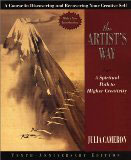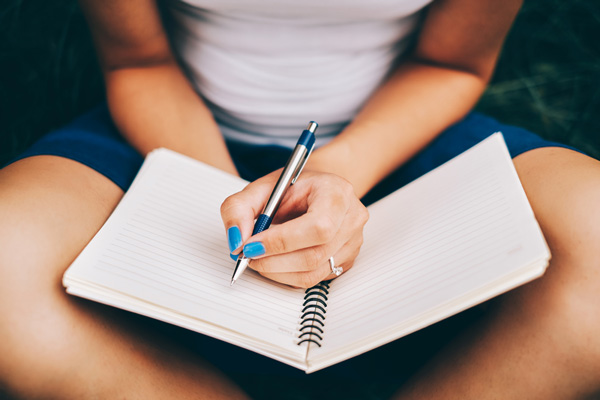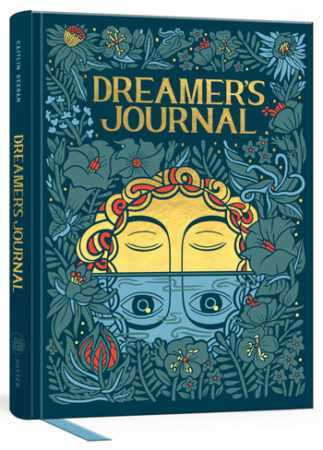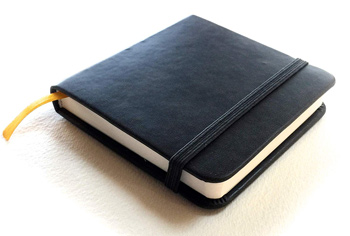Every expert in the world thinks you should keep a journal. Physical trainers suggest keeping an exercise journal, and nutritionists recommend keeping track of your meals. Oprah insists on a gratitude journal, and business consultants promote journaling one’s career.
How much journal writing can one person do?
Journals are, first and foremost, the forté of writers. Journal writing provides a space where thoughts, ideas, stories, and poems can be recorded. We can turn to our journals when we’re inspired, and then we can turn to them again when we need inspiration.
Some journals are topical while others are a hodgepodge. You might use several different journals, each for different projects or topics, or you might use one journal for everything. There’s no right or wrong way, and there are no limits to the journal ideas you can use to inform and inspire your creative writing projects.
Journal Ideas for Writers
These journal ideas foster creative thinking and promote regular (daily) writing. Some are good for keeping track of your ideas. Others are ideal for solving problems or keeping yourself inspired and motivated to write. Try one or try them all, or just create one omni-journal for all your creative writing.
The Dream Journal
The subconscious is a wondrous thing. Artists and geniuses alike have attributed some of their best work to inspiration that came in a dream. A dream journal is useful for anyone who’s interested in exploring the subconscious, where creativity often lives and breathes. This type of journaling is also ideal for folks who are interested in dream interpretation or trying to achieve lucid dreaming. For writers, journals that hold dreams will provide images and concepts that the mind simply can’t drudge up during waking hours. Keep your journal near your bed and jot down your dreams as soon as you wake up, otherwise with each minute that passes, you’ll lose chunks of your nighttime imaginings.
Freewriting Journal
Sometimes called stream-of-consciousness writing, freewriting is a way to clear your mind of clutter and unearth creative gems. If you keep at it long enough, some pretty interesting stuff will emerge through your freewrites. If you can stop your conscious thinking and let the words flow, you’ll be amazed at the creative stew that is brewing just beneath the surface. You can do straight freewriting or try guided freewriting in which you focus on a specific word, image, or topic. It’s a great way to hash out conversations with your characters, accumulate raw material that can later be harvested for poems, and brainstorm for just about any writing project that you’re planning or working on.
Idea Journal
How many ideas have you lost? If you make it a point to note your ideas in your journal, there’s a good chance you won’t lose any at all. This is why so many writers keep a journal or notebook with them at all times. In fact many writers use miniature notebooks for this very reason — there’s nothing worse than coming up with a brilliant idea when you’re at a party, in the middle of a phone conversation, or trying to fall asleep. Keep your journal near your person at all times, and you’ll never lose an idea again. Or pick up several miniature notebooks and keep them in convenient places — your nightstand, purse, car, desk drawer at the office, even the bathroom! And if you’re ever struck with the ever-dreaded writer’s block, you can turn to your idea journal for inspiration.
Inspirational Writing Journals
What inspires you? A sunset? A day with friends and family? A mind-blowing movie or a song that makes you want to dance? Quotes from the greats? You can record all the things that inspire you in an inspiration journal, taking notes from some of the world’s most successful creators. You can even paste photos, clippings, and other memorabilia to capture moments from your life that were especially inspiring. Then when your creativity meter is running low, you can flip through your inspiration journal to grab ideas that ignite your passion (and your next writing project).
Art Journal
Even us writers have to admit that a picture is worth a thousand words. Symbols are particularly powerful and speak directly to the subconscious, which is where your muse might be hiding. Like a dream journal, an art journal is a fun and creative way to get in touch with the deeper recesses of your mind, where some of your most creative ideas are lurking. You don’t have to be a fine artist to use an art journal. Doodles and stick figures will open up your right brain too! An art journal is also perfect for sketching your characters, scenery, and maps of the worlds you’re creating for your fiction. And if you don’t want to draw, you can always use stickers, collage, and ephemera in your art journal.
Life Events or Diary
A diary is pretty straightforward — you simply record the goings-on in your life. Some people keep diaries for special times or events in their lives, such as when they’re getting married or having a baby, traveling, or moving to a new place. Diary writing is a great place to start if you’re interested in writing a memoir or autobiography. It’s also a perfect place to record the real experiences that you’ve had even if you plan on fictionalizing them later. Some of the best dialogue, descriptions, and scenes come from real life!
Reading Journal
If you want to be a writer, read. Read a lot, then read some more. You just can’t read enough. When you write about what you’ve read, you can capture what worked and what didn’t work from a writer’s perspective. You’ll pick up neat writing tricks, jot down techniques that you’ve observed other writers using effectively, and of course, as you read and get ideas for your own projects, you can include those as well. Best of all, you’ll have a place where you’ve listed everything you’ve read, and by keeping notes, you’ll retain all of it much better. As a bonus, you’ll also have a place to take notes when you’re reading books on the craft of writing!
Media Journal
Although reading is of utmost importance for any writer, we can gather creative ideas and techniques from art in its many forms. Use a media journal to capture your responses to films, music, television shows, plays, and art. Make notes about your favorite character arcs. Jot down bits of dialogue that moved you. Make miniature doodles of paintings you love. Media journals are excellent for keeping track of the art and entertainment that you’re consuming and what you have observed and learned from it, as well as how it makes you feel.
Bonus Journal Idea: Morning Pages
 Probably the most famous application of journal writing comes from Julia Cameron’s The Artist’s Way (aff link). In it, she encourages people who are trying to connect with creativity to write every single morning. “Three pages of whatever comes to your mind — that’s all there is to it.”
Probably the most famous application of journal writing comes from Julia Cameron’s The Artist’s Way (aff link). In it, she encourages people who are trying to connect with creativity to write every single morning. “Three pages of whatever comes to your mind — that’s all there is to it.”
Writing morning pages is like boot camp for your muse. By writing every day at the same time, you train her to show up when you say it’s time to work. Cameron’s methodology also involves turning off the inner censor, that little voice that berates every sentence.
The key to morning pages is to simply let the words flow.
Morning pages have other applications. Some folks use them as a brain dump — a way to purge all the messy thoughts from their minds so they can start their day fresh and clear-headed.
Be sure to check out my GUIDE TO JOURNALING FOR WRITERS,
which has more ideas for journals that are beneficial to writers
Which of These Journal Ideas Sparks Your Imagination?
Think about it — if you write one page a day in your journal, you’ll have 365 pages at the end of a year. That’s a lot of creative material to pull ideas from.
Journals are traditionally kept in paper notebooks, but you can journal using digital tools as well (most of us find that writing by hand boosts creativity).
Experiment with different journaling supplies and try a wide range of journal ideas. Eventually you’ll find what works for you.
What types of journals have you kept? Do you think journal writing is beneficial? Did any of these journal ideas appeal to you? Share your thoughts and ideas in the comments.










Hi Melissa, my post is up on this topic.
Nice blog. Came across it through Google Reader. It tosses quite a few blog recommendations my way; most don’t make the cut but I’ve subscribed and will be a regular here.
Interesting to read all your posts re: blogging. I began blogging four years ago – 600+ posts later, I decided to pack it in. Your posts inspire me to get back to it (which I will do in time, once I kind of chill and refocus). You’re so right about the community aspect of blogging – a true bonus!
@Deb (gscottage), you sure know your journals! In an upcoming post I’m going to talk about the different types of blank books and notebooks that we can use, because in addition to being curious about what people write about in their journals, I’m also curious what kind of journals they use!
@Dianne, I hope you’ll come back and give us a link to your blog once you return to blogging! Thanks for subscribing!
Hi Melissa, I love this topic. I never considered myself a real writer but I’ve kept journals all my life. I used to keep only one and have everything go into it, but now I have many and they are much more specific. I like it better, it’s more organized and I don’t have to trudge through pages of how mad I was at my mother when I’m trying to find a fragment of song lyrics 🙂
I keep little ones in my purse, in the kitchen etc, just as you say. It is so helpful. Doing a journal specifically for reading is new for me but I find it indispensable now that I am reading material that is so challenging for me. It’s also a fun record of my progress.
Sometimes the lines blur between the journals but it makes sense to me :).
Awesome! I currently keep an online dream journal which I love an online “life” journal and then an offline Idea journal. Anyway great suggestions! 😀
I do keep a reading journal where I keep track of the books I’ve read, but that’s about it–the title, author, date, number of pages, and whether it’s new or not. (I reread books a LOT.) I used to keep a daily kind of journal where I’d also copy in good quotes that I found or jot down thoughts/ideas, but haven’t done that since about 2004. No real reason that I stopped, mind you! Although starting my knitting blog in 2005 pretty much put paid to the journal–now the blog is where I keep track of things, though, obviously, it’s a lot more public (grin).
I think journaling is essential for writers. It allows a place to express yourself freely and openly, while also finding your writing voice. It is a place to develop without criticism.
Since I received my first journal as a gift at 10 years old and fell in love with the little lock and key, I have been writing regularly.
I am ok with computer journaling. I do both, notebook and computer, whatever is available in the moment of inspiration. Computer I prefer because my typing speed is faster than my handwriting speed; my thoughts are faster than any writing, and I hate when a thought escapes me because I can’t get it out fast enough.
Thorough and great post.
Nice post Melissa. I currently keep an idea log and dream log in my iPhone. I must admit I do miss writing them down in real journals, but the iPhone is just more convenient for me, especially for the idea journal as I don’t always carry a notebook with me. I might have to start keeping a paper dream journal again!!
Hi Melissa!
Great post! I totally agree with you about putting pen to paper – there is just something about it that typing on a keyboard can’t compare to. Much of my short fiction is still written by hand.
I keep one journal – my trusty Moleskin. I mainly use it for writing down ideas and bits of inspiration. But I’ll also jot down notes, phone numbers and other items if I don’t have anything else handy.
For a writer, having a journal is a must. Even for those who read a lot, a journal can be really useful. I’m thinking about starting a reading journal, just so I can once again dive into the literary criticism I loved so much back in my college days!
Excellent post, keep up the good work!
Brad
I’ve been looking for insight
and motivation to journal.
thanks
Not all writers journal, but all journalers write!
Eh? Eh? Eh…
I obviously don’t write comedy.
My Mom keeps suggesting a “Happy Compartment” journal.
When something nice happens, you put it in your “Happy Compartment”.
Then, whenever you feel bad, you just open up your Happy Compartment, and relive the happy time and make yourself feel better.
@Greer, I always kept everything separate and have only recently decided it would be better to do an all-in-one notebook. Mostly, because I use paper journals less than I used to, and I ended up with a bunch of half-filled blank books. I do keep several little ones on my nightstand and in my car and purse. Those have been life savers!
@Susan, an online dream journal? You’re brave. Stevie Nicks’s line, “I keep my visions to myself” doesn’t apply! I’ll definitely check out your site.
@Deb (Punctuality), the reader’s journal is one of the few I haven’t tried yet. When I read, I get really absorbed and often polish off a book in a day or two, which doesn’t leave time for jotting down notes! I hope to try it someday though.
@Jaden, I’ve talked to some writers who don’t use journals at all! Can you believe it? I will say this: since I lessened my own journaling, I put out more blog posts and other polished projects. It’s fantastic that you use both paper and electronic journals. Two cheers for flexibility!
@Amy Derby, there you go getting me all jealous with talk about your iPhone again *pout pout* All in good time…all in good time. And when I do get one, I’ll definitely use it for notes and journaling.
@Brad, I really need to try one of those Moleskines. They sure are all the rage! I couldn’t agree with you more about putting pen to paper. It’s a dying art, I’m afraid, but there’s nothing quite like it.
@Terry Finley, I popped in and peeked at your website and can’t wait to explore it more. Very nice!
@Erik, funny you should mention comedy, because I’ve been thinking about how to make my writing more humorous. I wonder if there’s anywhere online that provides tips? Hmm…
@Friar, your mom is one smart lady. My teen journals were nothing but whining and complaining. I wish someone had come along and told me to write down all the happy stuff. Luckily, I have a solid memory, so I can recall most of it. One of these days, I’m going to burn those old journals! Yuck.
@Melissa Donovan LOL I hear ya… Actually this site allows you to keep certain dreams or your entire journal “private”. The one reason I like doing an online version of my dream journal, is it allows tracking of themes, symbols, etc. I can pull up any dream that I had, for instance, about my cat, in a matter of seconds.
Journaled on and off since high school but it was mainly personal and I destroyed them periodically because there are some things about and young woman’s evolution that aren’t any of her descendants’ business.
Now I blog and it is a mixture of my life and my passions and my explosions. Being 44 I don’t worry too much about the wee ones or what they will think about it. Maturity is a good thing.
I have an idea notebook. Several in fact so I seldom without though I find they don’t do me much good when I am in the middle of a 4 mile run. Why do so many ideas strike me in mid-run, I wonder?
I hate freewriting. It was in vogue as a teaching tool when I was a young teacher and I never could understand why. It’s too daunting for such young kids.
Very nice post. Thanks.
Hello Melissa~ Thanks for stopping by Poefusion. I agree, I wish I could draw that good too. Your blog is really nice. I have stopped by several times and read some of your posts. I think every writer should have at least one notebook/ journal they write in once in awhile and another idea I find helpful besides the computer is a digital recorder. They are small enough to carry in your pocket or keep in a purse etc. I find mine indispensable. Thanks again for stopping by. Have a nice night.
Great post, though I have kept all my teen journals and all. It’s good to look back into the past; it keeps you humble.
I generally do freewriting/diary writing, but perhaps the most important thing about it is that I actually work out my hands! In this age of word processing and BlackBerries, I have to keep my hand trained to write the ol’ fashioned way.
Great post!
Thank you for visiting my blog.
I like your site.
We writers need each other.
Terry
Melissa, I keep several journals and notebooks too – ideas, inspiration, writing, life, prayer and a sketchbook too (even though I’m not an artist). Typing is faster and neater but I love pen to paper. I use different colored pens because sometimes purple ink just expresses the thought better. I have not ever kept a reader’s journal but what a wonderful idea! I don’t use the mini notebooks, I need room. LOL!
You know, Melissa, I think I’ve always done all these different things in the same journal. I’ve scribbled “pictures” and written down my dreams. I’ve jotted down ideas and just poured out my heart. I never really thought about keeping separate journals. I feel bad about paper at all anymore. Every time I fill up a page, I think about wasting trees. 😉
*smiles*
Michele
@Susan, that’s definitely one of the benefits of keeping an electronic journal — the ability to search the text for keywords.
@Annie, I get a lot of ideas when I’m exercising and even more when I’m in the shower. Both are inconvenient times, because I can’t really stop and jot down my thoughts. Do you find that you’re able to remember your ideas and get them down on paper later? Sometimes I can, but I’m afraid I’ve lost a few too.
@Michelle, thanks for stopping by Writing Forward and for commenting! I’ve heard great things about digital recorders but haven’t picked one up yet. However, I have called myself and left a voicemail with some notes or ideas, and that worked out pretty well. Actually I think my cell phone has a recording feature. Maybe I should check that out!
@Eva G, I’m in full agreement when it comes to handwriting. Mine has suffered a lot over the past few years since I’ve been turning more and more to the computer for my writing.
@Terry Finley, we sure do need each other! That’s one of the reasons I love the Internet — it has helped me connect with lots of other writers like yourself!
@Karen, I use colored pens too! Not all the time, but when I’m feeling especially creative I do pull them out. They’re also great for brainstorming and taking notes that are easy to peruse later.
@Michele, that’s another good reason to use just one journal — save the trees! Also, I like how everything all jumbled up together has a super creative vibe!
I use 750words.com for my electronic journal. It offers some analytics such predominate tense, feelings in the entry, and keeps track of days in a row that you wrote at least 750 words. It’s private. I also keep a notebook journal for when I attend a writer’s group. I also keep what I call a commonplace book which is where I keep quotes and brief ideas. And I have an art journal as well. All of these inform my blog of poetry and flash fiction.
I always find it interesting to learn which notebooks and journals other writers use, and especially how they organize their materials. Thanks for sharing, LuAnne.